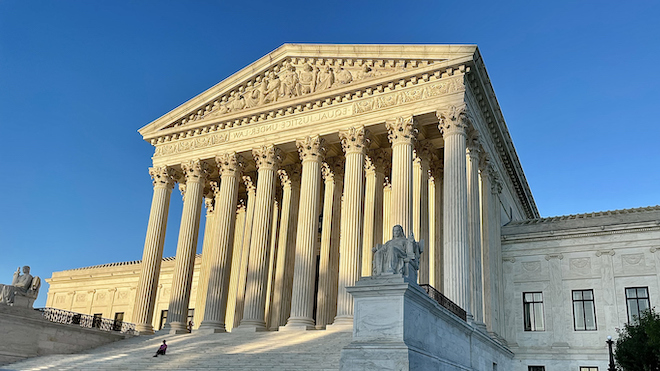
U.S. Supreme Court
Colleges and universities have long given preferential treatment in admissions to applicants with legacy alumni connections. But after the Supreme Court ruled to ban affirmative action last month, the future of legacy admissions may be at risk.
US News recently explored legacy admissions and why many are now calling on institutions to reconsider the practice.
HOW LEGACY ADMISSIONS WORKS
In practice, legacy admissions typically give a boost to an applicant’s odds of admission due to the fact that the individual is related to an alumnus. But experts say that simply having a legacy connection does not guarantee admission.
“It’s not something that’s applied across the board or consistently – that just having alumni relations is enough to get you in. It tends to operate more as an influence factor, once other factors are taken into account,” David Hawkins, chief education and policy officer at the National Association for College Admission Counseling, says.
“Being a legacy is kind of like getting the Disney FastPass to go to the front of the line,” Julie Park, an associate professor of education at the University of Maryland, College Park, says. “It’s not that you didn’t pay to get in like everyone else, and you probably have pretty decent credentials. But being a legacy is something that gives you an extra boost.”
A number of highly selective and prestigious universities, including Harvard and Stanford, have a longstanding tradition of legacy admissions. There isn’t much concrete data on exactly how many applicants are accepted via legacy admissions, but the numbers available do shed some light. At Harvard, for instance, applicants who are recruited as athletes, legacies, relatives of donors, or children of faculty and staff are given selective preference in admissions. As a group, these students make up less than 5% of applicants, but around 30% of those admitted each year.
Emilio Castilla, a professor of management at the MIT Sloan School of Management, says there’s a big reason why some schools still prefer legacy applicants: it helps their bottom line.
“We found strong evidence that the college we studied benefits economically from admitting legacies,” Castilla, who conducted a research study on legacy admissions, says.
WHY LEGACY ADMISSIONS IS UNDER SCRUTINY
In recent years, colleges and universities have faced increased pressure to get rid of legacy admissions. Critics argue that the practice unfairly favors more wealthy, white applicants.
“It’s related to race very heavily, because the vast majority of legacies are white,” Park, the University of Maryland associate professor, says. “So it’s being talked about as a sort of affirmative action for the rich, or affirmative action for the white wealthy students – because there are legacies who are also students of color, but the number is just much smaller.”
At Harvard, roughly 68% of those applicants who are recruited athletes, legacies, relatives of donors or children of faculty and staff are white applicants. After the Supreme Court recently ruled to ban affirmative action, many are now saying legacy admissions should be next.
“If institutions can’t give you a leg up because of your race or ethnicity in a way that was theoretically intended to promote equality, it is really hard to understand why they can give a leg up to students whose parents or grandparents are fortunate enough to have gone to these places in a way that is almost inevitably going to promote inequality,” Frederick Hess, a senior fellow and director of education policy studies at the American Enterprise Institute, says.
Sources: US News, NPR, The New York Times
Next Page: Do employers prefer a Bachelor of Arts of Bachelor of Sciences degree?











Questions about this article? Email us or leave a comment below.